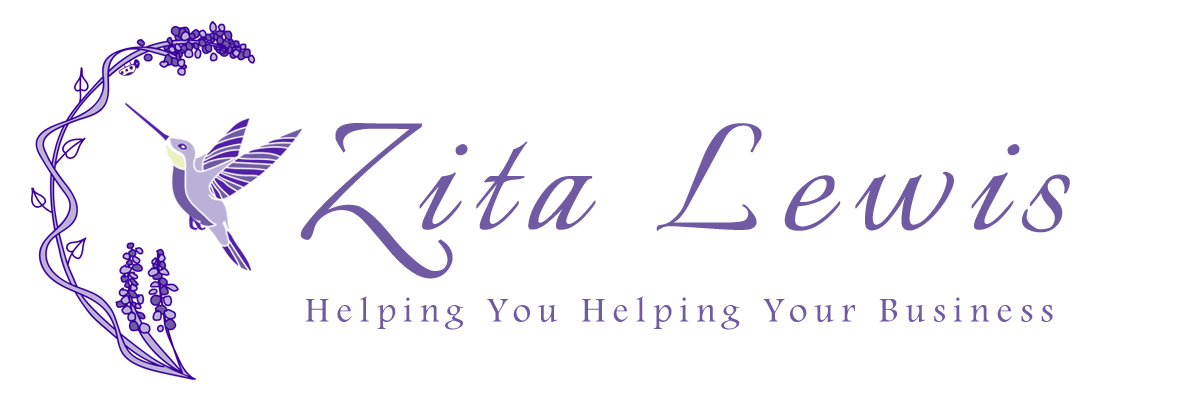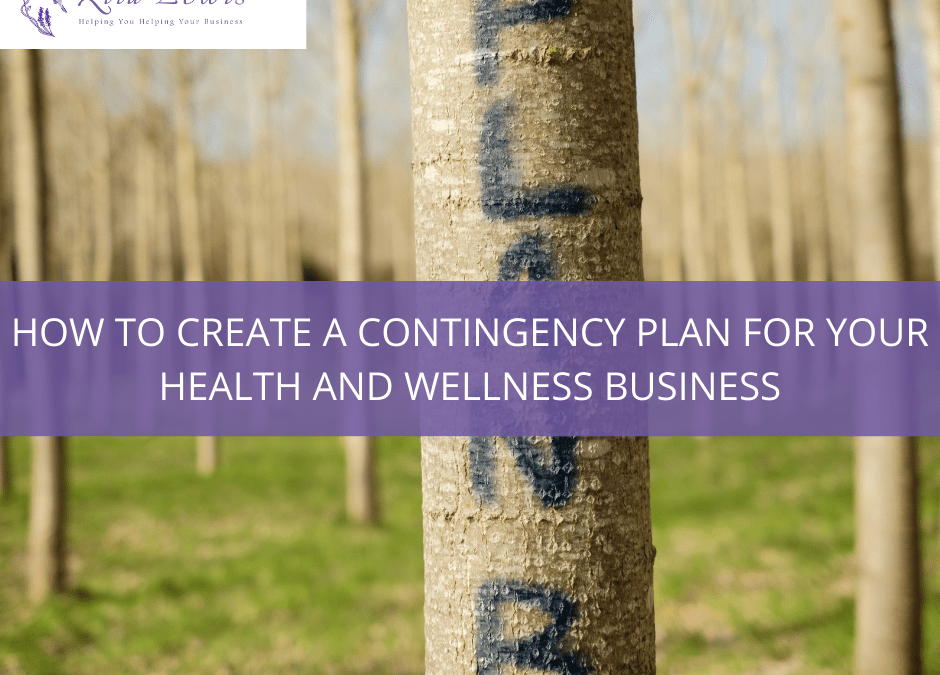In my previous blog, 3 Key Steps to Finding the Best Work/Life Balance for your Family, I discussed having a contingency plan in place in case of unexpected events that might disrupt your business. I covered the basics of the kinds of questions you should be asking yourself to prepare, along with some of the contingencies it might be a good idea to put into place now.
In this blog, I want to delve a little deeper into what a contingency plan might look like for a health and wellness small business owner. A lot of the information readily available about contingency planning is designed for freelancers and office-based businesses and the ideas aren’t always transferable.
I will say right now that because “health and wellness” is such a wide industry, not everything I talk about or suggest here is going to be relevant to you and how you work. But I hope it gives you some additional considerations and ideas you might not have thought of that will help you when creating your own contingency plan.
Risk Assess Your Business
There are inherent risks to every business, from weather events to public health incidents and more. We can’t control everything (as the current global pandemic demonstrates) but we can raise our awareness of what might happen so we can prepare a plan in case they do.
Some risks that might affect your business include:
Natural weather events – floods and storm damage are the primary ones in the UK. Is the building you see clients in at-risk from either of these events? If so, are there any precautions you can take?
Supplier issues – what happens if a supplier can’t deliver a product you use regularly? Do you have a backup supplier? If so, how quickly can they process and deliver an order?
Product issues – if you use a carrier for your aromatherapy oils and it’s suddenly recalled by the manufacturer, do you have an alternative you can switch to straight away? That’s one example of how a product issue might affect your holistic business.
Government issues – PPE and social distancing have been a headache for many of us but are a great example of how a sudden change in government policy can disrupt our businesses.
Legal issues – a client is unhappy and threatening to take you to court. How might this impact your business?
Equipment issues – everything from your internet connection and pc, to the stereo and items you use when providing your services. If one of them breaks, can your business carry on as normal?
Personal issues – whether you fall ill or need to care for a family member, or you need time out for any other reason, what will the impact be on your business?
Those are just a few examples of the risks that you need to consider for you and your business. It’s good to take an objective look and consider your premises, your products/supply, your services and the technicalities/legalities involved, along with potential personal issues and client conflict.
Plan and account for the risks happening
None of us want to lower our vibrations by focusing on bad things that might happen but it is important to be prepared. Rather than spending a long time on this, why not break it down and prepare your plan over the course of a few days or weeks, so you don’t dwell on the negative for too long.
But do make sure you get it done, procrastinating could spell disaster if one of these risks did come along and you have no contingency plan in place.
So, what can you do to plan and prepare?
Check your professional guidelines
If you belong to a professional body or membership then, chances are, there will be some guidelines you have agreed to follow. Having the correct insurance in place will be one of these but it may be the case that a contingency plan is necessary too, the good news is that your professional body will have guidelines and recommendations for this so do follow them and/or ask fellow members for their suggestions too.
Check your client contracts
Terms and conditions are your friend and can ensure you’re not having to deal with costly refunds for events that are out of your control. Again, your professional body may have sample contracts or terms and conditions that they recommend you use. However, it is advisable to have your contract checked over by a legal professional to ensure you’re fully protected.
Check your insurance documentation
Having the right insurance is important but do make sure you read and follow the rules in the documentation. These are designed to protect you and your business and your insurance company will have risk assessed your role/services you provide. As they’re the experts in risk, putting what they want in place will help you in the future (and not doing so may mean your insurance is invalid). If you are ever in doubt as to whether a service you offer or want to offer is covered, get in touch with them. It may be time out of your day but it’ll save money in the long run. For example, moving your classes online during the pandemic, are you covered by your current policy?
Your professional indemnity insurance will also assist you with clients taking you to court, the papers, etc. You may find that your insurance company instructs you to suspend services for a short while if a client is saying you’re unsafe, for example, so do have a conversation with your insurance company about what might happen in events like this so you can be prepared and know what you tell your other clients.
Check over your premises
If you rent your premises, make sure your landlord is fulfilling their responsibilities and making sure the building is fit for use, that fire escapes aren’t blocked and the smoke detectors are working properly, etc.
If you own your premises and see clients there, you need to ensure your building is safe for others to use. Your local Fire Service will be happy to help you risk assess and identify any measures you might need to put in place for fire and flood risk.
Create a backup list for products and equipment
If your internet does down, what can you do? A data hub can get you reconnected again quickly and just requires a sim card that you can activate when needed (BT provide their own hub with their Halo plan that is delivered the next day if your internet goes down).
For products, it’s worth having a second or third supplier in case your usual supplier lets you down, make sure you know their turnaround time. It’s also worth having some alternative products readily available too in case of manufacturer recall, or even price increases.
Consider a contingency partner
When it comes to the personal issues that might arise, you need a trusted contact to be able to step in as and when needed to keep your business ticking over. Whether it’s having access to your client list and postponing appointments, or putting out social media announcements, diverting phone calls, etc.
It’s a big ask! A lot of business owners will choose another trusted business owner but will they be able to devote the time and resources necessary for the task? Another option would be to outsource some of these plans or tasks, on an adhoc basis, to a Virtual Assistant, like myself, who works with health and wellness business owners every day and understands how to help you and your clients best, especially in an emergency situation.
If you need help with these steps either regularly or on an adhoc basis, get in touch with me now for a quick chat and we can take it from there.

